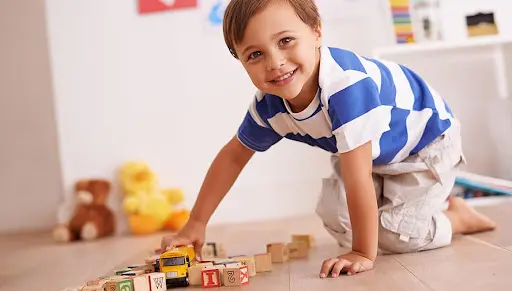
A child’s brain undergoes development from the time they are born. This development is influenced by many factors, including a child’s relationships, experiences, and mood. The development of a child’s brain is affected by early experiences. These early years are critical as it impacts a child’s chances for achievement, success, and happiness. A toddler’s earliest years have effects that last a lifetime.
A child’s brain undergoes an impressive change between conception and age two. In the first two years, a child’s brain produces twice as synapses as adults do. Synapse is the structure that permits one nerve cell to pass a chemical signal to the other nerve cell. In addition, synapses are formed faster during these years of a child’s brain development than at any additional time. As a result, during this early age of development, the brain can capture experiences more effectively and quickly than it can at a later age.

Research shows that the first two years are vital to the child’s brain development. It is because the child’s brain responds to continually changing experiences differently. These experiences help the child to understand and remember things. It also tunes the brain and strengthens connections.
Some studies have proved that the complex interaction between the child’s genes and environment plays a critical role in brain development. However, both genes and the environment play different roles. For example, genes are responsible for creating potential in a child, whereas background gives the brain the experience that comes from how he interacts with his parents and family.
How to Boost Brain Development Activity?
In the pre-natal stage, the fetus’s brain produces more neurons than it requires. Unfortunately, all these neurons are not preserved. Later the axons branch out, and again some are lost. At the pre-natal stage, nothing can be done to save the atrophy of the axons.
After the child is born, the brain experiences another spurt in growth because of the sudden increase in the sensory stimuli. The good news is that this time a more significant number of the newly formed dendrites can be preserved. The technique to keep them is to provide the brain with more stimulation.
It will ensure that more electrical signals are sent through the axons to the dendrites. More dendrites will be conserved if a child can be given the required stimulation. These dendrites will ensure that the child grows up to have superior cognitive abilities. It will make the child a better learner when the formal learning process begins at the kindergarten and school levels.
According to psychologists, parenting begins even before the child is unborn. A mother talking, reading, and singing to the unborn child creates a mother-infant bond early on. Even after the child is born, the parent’s interaction plays a critical role in the child’s brain development. It goes a long in shaping the child’s brain and affecting his psychological state.
Some studies have also shown that children who receive responsive and sensitive care from their parents in their early years grow up more confident and self-confident individuals. In addition, recent advances in brain research have shown that brain development in children is not only dependent on genetics but is also determined by the child’s experience.
In truth, children may act impulsively in several ways. If your child works without thinking or makes poor choices, take a deep breath and remember these are typical characteristics of the adolescent years. To keep your child safe and mindful, continue to offer and enforce consequences for poor behaviors. Remind your child to take time to think things through before acting.
UpTodd offers a personalized parenting platform to ensure babies get the proper stimulation, and the phase of 0-3 years can give the best result to the baby for its entire life. So, explore the demo at https://www.uptodd.com
